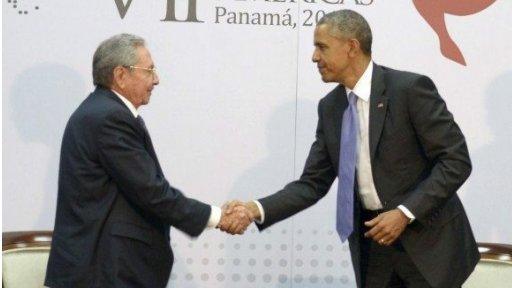Obama to take Cuba off US terror list
- Published
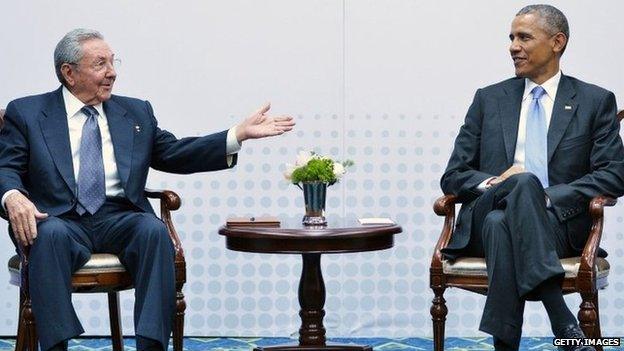
Cuban President Raul Castro and Mr Obama met during the Summit of the Americas last week
President Barack Obama will remove Cuba from the US list of state sponsors of terrorism, the White House says.
The move comes amid a normalisation of relations between the US and Cuba.
The Caribbean country's presence on the list alongside Syria, Iran and Sudan was a sticking point for Cuba during talks to reopen embassies.
Republican Senator Marco Rubio condemned the White House decision, saying Cuba remained a state sponsor of terrorism.
"They harbour fugitives of American justice, including someone who killed a police officer in New Jersey over 30 years ago," said Mr Rubio, a Cuban American who launched his 2016 presidential campaign on Monday.
"It's also the country that's helping North Korea evade weapons sanctions by the United Nations."
Mr Obama announced the historic US thaw with Cuba in December but the US trade embargo against the country remains, and may only be ended by Congress.
Analysis - Thomas Sparrow, BBC Mundo, Washington
This decision is the most concrete step to date taken by the US government to try and dismantle the structures that prevented a normal relationship between both countries for decades.
And it carries a lot of weight too, because it officially changes the way the US government has viewed Cuba since 1982.
The White House now believes Cuba does not support rebel groups such as Farc or ETA and - more importantly - it thinks the government will not do so in the future.
This is a significant message of confidence by the Obama administration towards the Cuban government.
Mr Obama said the government of Cuba "has not provided any support for international terrorism" over the last six months and had "provided assurances that it will not support acts of international terrorism in the future".
White House press secretary Josh Earnest said the US still had differences with Cuban policies and actions, but they were not "relevant" to the terror list.
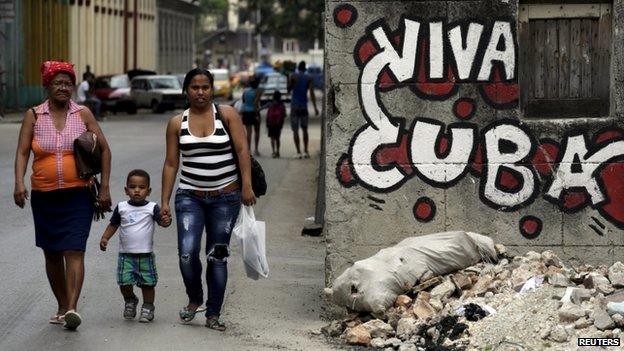
The US blockade against Cuba remains
Cuba was first placed on the state department list in 1982, for what the US called efforts "to promote armed revolution by organisations that used terrorism".
The US believes Cuba had long provided a safe haven for members of the Basque separatist group ETA and Colombia's Farc guerrilla group, according to its 2013 Report on Terrorism, external.
But the Caribbean nation has frequently rejected its presence on the list, describing it as unfounded.

Key moments in US-Cuban relations since Cuba's 1959 revolution
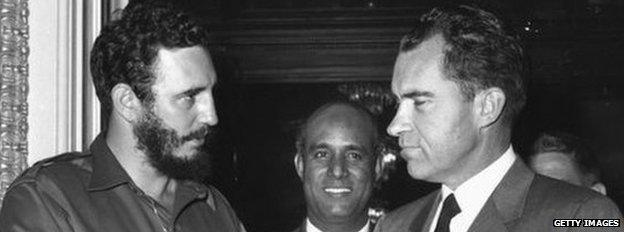
Cuban President Fidel Castro (left) with US Vice-President Richard Nixon during a press reception in Washington in 1959
1960: US breaks off diplomatic relations and imposes trade embargo
1961: US backs failed Bay of Pigs invasion; Fidel Castro proclaims Cuba a communist state and begins to ally with USSR
1962: Fearing US invasion, Castro allows USSR to deploy nuclear missiles in Cuba. Crisis takes the two superpowers to brink of nuclear war
1980: Around 125,000 Cubans, many of them released convicts, flee to the US when Castro temporarily lifts restrictions
1993: US tightens embargo, which introduces some market reforms amid economic woe following collapse of the Soviet Union
1999: Cuban child Elian Gonzalez picked up in refugee boat off Florida coast and placed with relatives in Florida, against wishes of father in Cuba. After numerous court decisions, US federal agents seize him to return to father
2002: US Under-Secretary of State John Bolton adds Cuba to "axis of evil"
2014: President Obama announces moves to normalise diplomatic and economic ties in a "new chapter" of US-Cuba relations

- Published9 April 2015
- Published23 January 2015
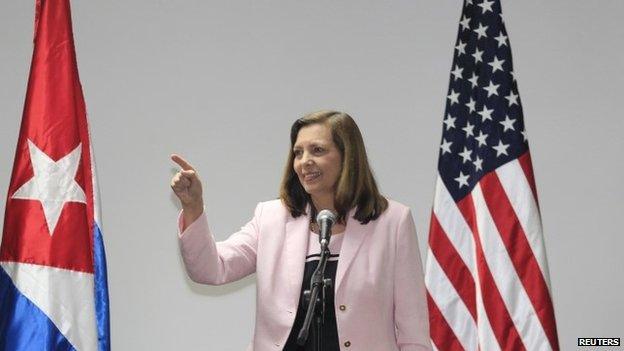
- Published10 April 2015
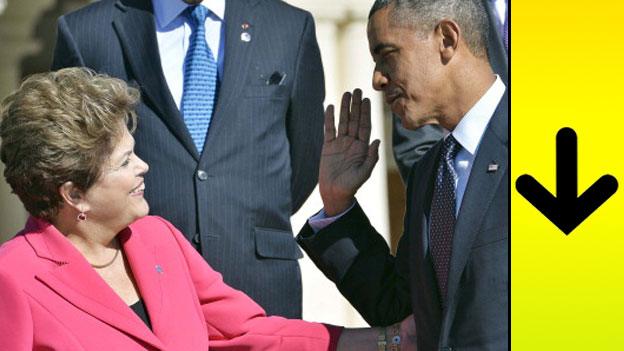
- Published12 April 2015
